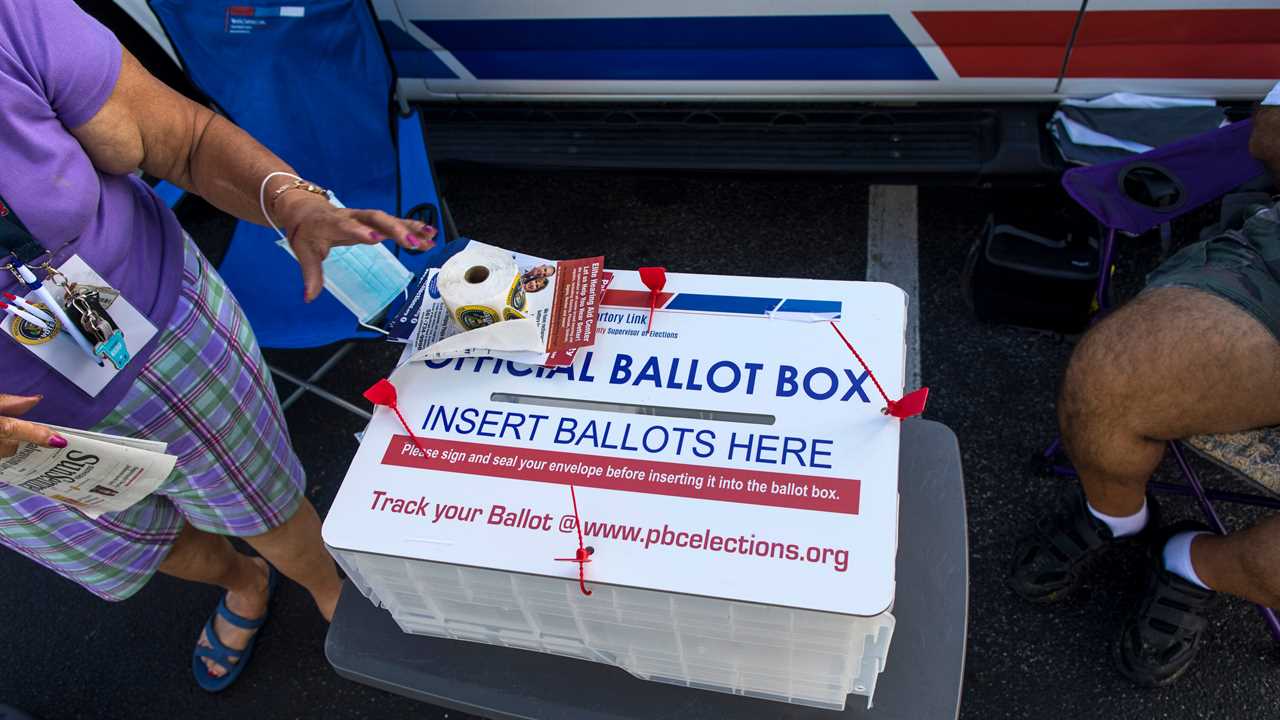
A federal judge in Florida ruled on Thursday that sections of the state’s year-old election law were unconstitutional and racially motivated, and he placed the state under a 10-year order to receive clearance from the federal government before changing its voting laws again.The 288-page order, issued by Judge Mark E. Walker of the Federal District Court in Tallahassee, is the first federal court ruling striking down key parts of any voting law enacted by Republicans in battleground states since the 2020 election.“For the past 20 years, the majority in the Florida Legislature has attacked the voting rights of its Black constituents,” Judge Walker wrote in the decision, which frequently quoted the Rev. Dr. Martin Luther King Jr. “They have done so not as, in the words of Dr. King, ‘vicious racists, with [the] governor having his lips dripping with the words of interposition and nullification,’ but as part of a cynical effort to suppress turnout among their opponents’ supporters. That, the law does not permit.”Judge Walker’s decision is certain to be appealed and is likely to be overturned either by the Court of Appeals for the 11th Circuit in Atlanta or the Supreme Court, which has been chipping away at laws protecting voting rights for a decade.Signed into law by Gov. Ron DeSantis, a Republican, in May 2021, the election legislation limited the use of drop boxes; added more identification requirements for those requesting absentee ballots; limited who could collect and drop off ballots; and further empowered partisan observers during the ballot-counting process, among other provisions. Judge Walker imposed the preclearance requirement on Florida by applying a little-used provision of Section 3 of the Voting Rights Act known as “bail-in.” The provision allows judges to place jurisdictions under additional federal oversight if they are found to be repeat offenders in racial discrimination cases, said Travis Crum, a law professor at Washington University in St. Louis who, as a law student in 2010, proposed using the “bail-in” method to bolster federal enforcement of the Voting Rights Act.Courts have used the “bail-in” provision sparingly since the Voting Rights Act was enacted in 1965. Only New Mexico and Arkansas have been placed under preclearance requirements by judges, both decades ago. A few counties and cities have as well, Professor Crum said.Bail-in requirements typically sunset after a period of time and are limited to specific elements of voting laws. Judge Walker’s decision imposes a 10-year preclearance requirement on any changes Florida lawmakers could make related to drop boxes and a requirement that voter-registration groups warn people they are signing up to vote that their application might not meet the state’s deadline.Since the Supreme Court invalidated the longstanding preclearance requirements in the Voting Rights Act in 2013, Democrats have tried to persuade courts to impose bail-in requirements on voter identification laws and redistricting maps in North Carolina and Texas, but federal judges have declined to do so in major cases.“From a realistic perspective, it’s unlikely that the 11th Circuit or the Supreme Court would agree with the district court that there was racially discriminatory intent in Florida,” said Nicholas Stephanopoulos, a Harvard Law School professor and an expert on election law. “We’ve seen other district courts do aggressive things in election law cases, and we’ve seen a lot of those decisions get reversed by appellate courts or the Supreme Court. I wouldn’t be shocked if this litigation falls into that pattern.”Florida Republicans blasted the decision by Judge Walker, who was appointed by President Barack Obama in 2012.Understand the Battle Over U.S. Voting Rights
Card 1 of 5Why are voting rights an issue now?In 2020, as a result of the pandemic, millions embraced voting early in person or by mail, especially among Democrats. Spurred on by Donald Trump’s false claims about mail ballots in hopes of overturning the election, the G.O.P. has pursued a host of new voting restrictions.What are Republicans trying to do?Broadly, the party is taking a two-pronged approach: imposing additional restrictions on voting (especially mail voting) and giving G.O.P.-controlled state legislatures greater control over the mechanics of casting and counting ballots.Why are these legislative efforts important?The Republican push to tighten voting rules has fueled doubts about the integrity of the democratic process in the U.S. Many of the restrictions are likely to affect voters of color disproportionately.How have the Democrats pushed back?Nineteen states passed 34 laws restricting voting in 2021. Some of the most significant legislation was enacted in battleground states likeBy: Reid J. Epstein and Patricia Mazzei
Title: Judge Rules Parts of Florida Voting Law Unconstitutional
Sourced From: www.nytimes.com/2022/03/31/us/politics/florida-voting-law.html
Published Date: Thu, 31 Mar 2022 19:14:50 +0000
Read More
 UK PoliticsWorld PoliticsVideosPrivacy PolicyTerms And Conditions
UK PoliticsWorld PoliticsVideosPrivacy PolicyTerms And Conditions
